#historical(?) fiction
Note
This is a bit of a generalized question, but I often find that the most difficult aspect of doing research for disabled characters is finding resources that don't just operate on the assumption that of course you will be getting modern treatments/surgeries/medications. This isn't always applicable in every setting, and isn't especially helpful when I'm trying to get information on chronic or progressive conditions that modern science tends to handwave away. (Specific examples I've struggled with are epilepsy, which most places just go "of course you'll go on an anti-seizure medication and just Be Fine Forever" and information about paralyzed hands from nerve damage that all the resources I found assumed the individual would just have surgery and Be Fine Forever.) How would you suggest finding resources for conditions that explain what having that condition is actually like?
Hi,
For historical fiction and fantasy fiction with a similar technology level alike, I tend to find resources by looking up “history of [condition],” as well as “history of [condition] treatment” as well as being more specific like “[condition] in the 19th century” or even the specific year. This won’t always or even often turn up a bunch of resources, but it can help get a good starting point.
This is often more effective along with looking up something more general, like “hospitals in the 19th century” to see what things they would vs wouldn’t be able to do or treat, and looking up specific symptoms and perhaps if you don’t want them to be treated because it’s not something possible in your world.
So if you’re researching the nerve damage you could look up “hand surgery in [time period],” as well as “permanent hand paralysis,” even if it gives you results that have a different cause from your character. It’ll give you another look into how someone would live with a particular disability.
Epilepsy in particular is one of the oldest conditions we know about; we even have descriptions of what can help us describe and identify epilepsy from as early as 1700 BCE. Hippocrates in the 400s BCE was one of the first to theorize it was a brain condition and non-contagious, but this didn’t pick up steam until about much, much later in the 1600s. Here is a research paper where I got much of this information on. (It’s not paywalled as of me writing this answer.)
On that note, research papers can be your friend, too, on how things have historically been seen and treated.
Usually you’re trying to find not only medical resources, but historian-based resources as well. Sometimes I find info in blogs that I then have to double check, but these can be really valuable once you do your fact-checking. And I will admit, it is not easy and you will have to sift through a lot of information and even some misinformation.
But I hope this can help point you in the direction you want!
— Mod sparrow
#historical fiction#epilepsy representation#nerve damage representation#research advice#mod sparrow#historical setting
80 notes
·
View notes
Text
Webcomic day!
I never miss an opportunity to plug my own comic, so you can read Bybloemen here!
What's this about, you say? In the 1630s, the Dutch came down with tulip mania, and enterprising florists looking to make a quick buck produced a speculative bubble that was forerunner of the Beanie Baby craze of the 90s or the NFT market of...last year.
Enter two devils, hellbent on convincing the residents of a backwater port town to stake their fortunes and souls on a promising bulb. And also invest in a potential pharmaceutical scandal, read questionable religious tracts, and possibly adopt a pug of great ambitions and ill repute.
If historical fantasy comics are your thing, you might also enjoy these (extremely excellent stories):
Hans Vogel is Dead
Alexander, the Servant, and the Water of Life
Obelisk
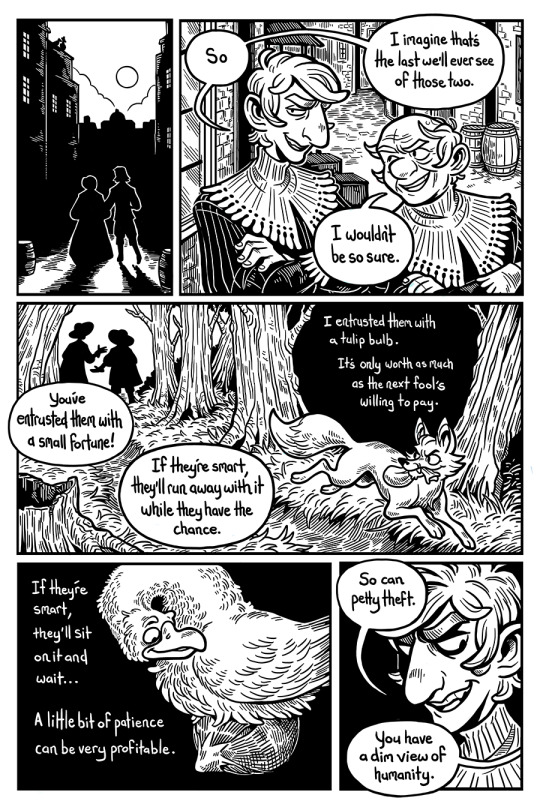
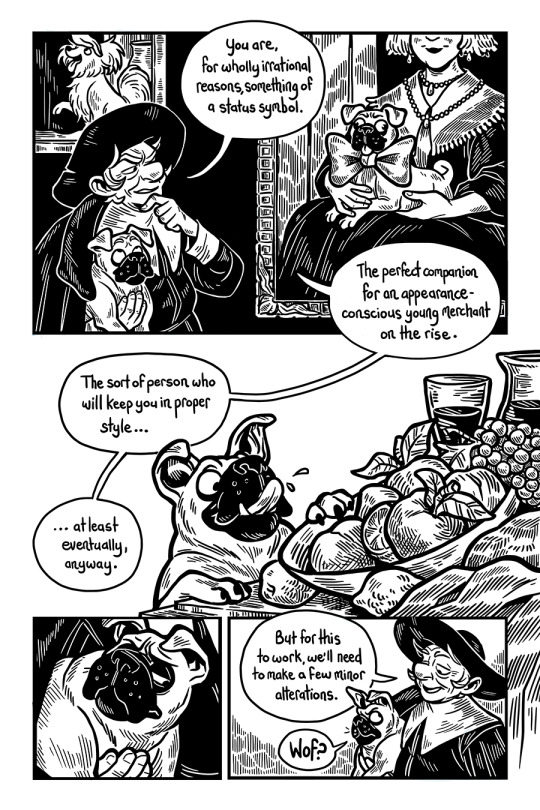
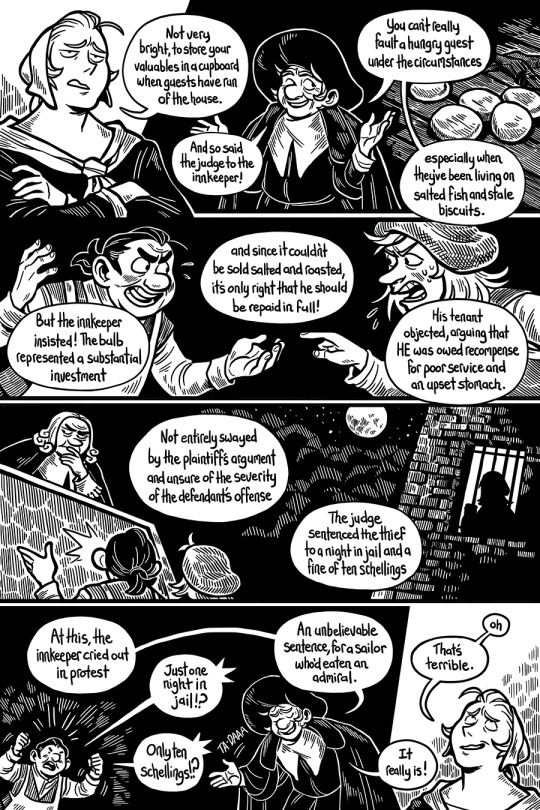
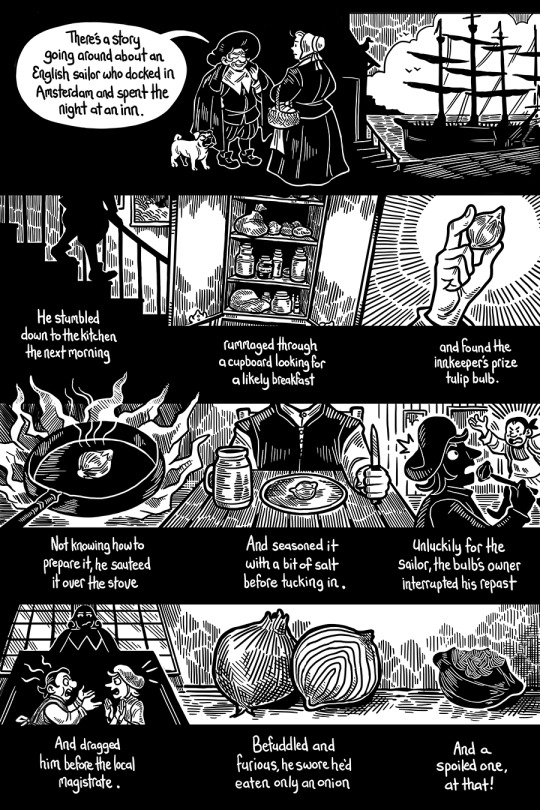
#bybloemen#hiveworks#webcomics#devils#historical fantasy#demons#tulipmania#tulips#17th century#historical fiction
77 notes
·
View notes
Text
Fitzjames (romance) novel
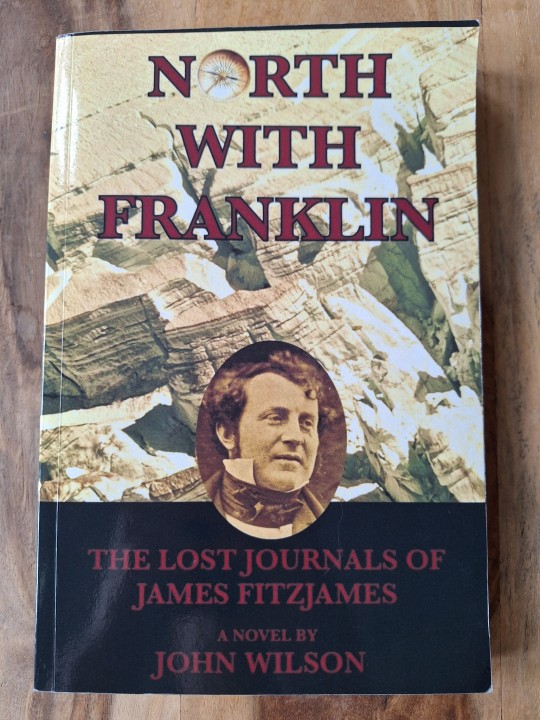
The kind of historical fiction I personally enjoy the most is plausible fiction and there is a very good Fitzjames novel that is just that: North with Franklin by John Wilson (1999). Wilson really captures the voice of Fitzjames using the information that was available then. The only thing I don't like is the romance that Wilson inserted, the person he chose for Fitzjames is completely unrealistic in my opinion (but of course you can do whatever you want in fiction). Can definitely recommend this book!
Two years ago Wilson published a sort of facsimile edition but I think the font is rather annoying to read:

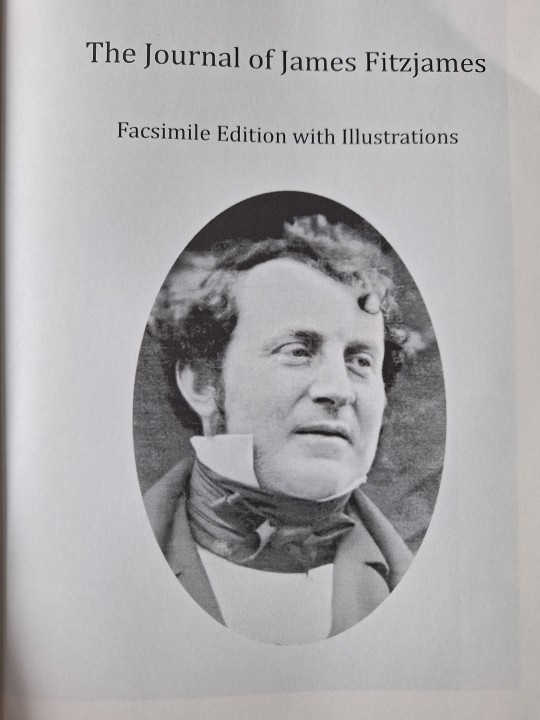
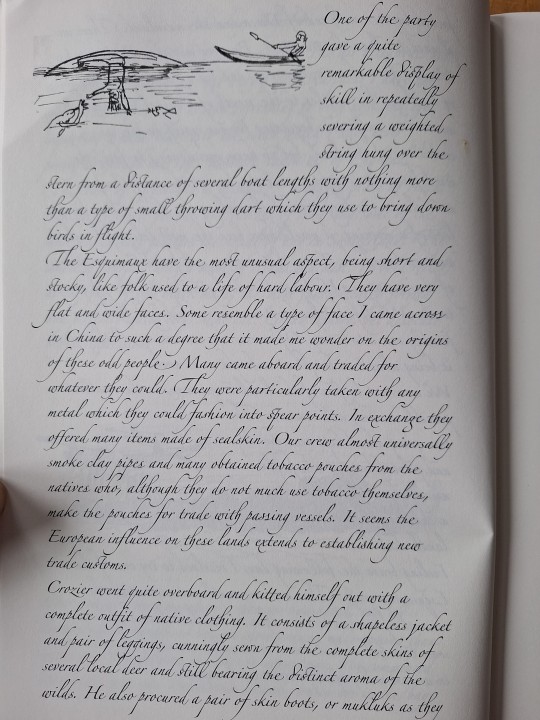
32 notes
·
View notes
Text
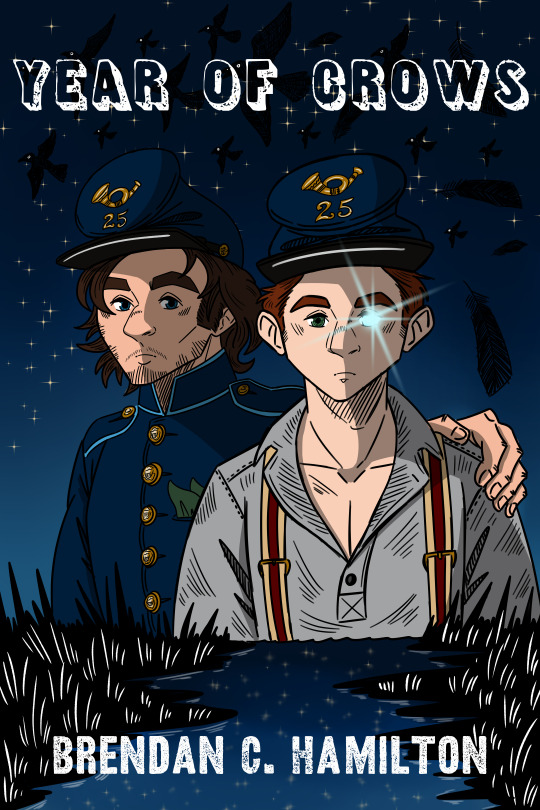
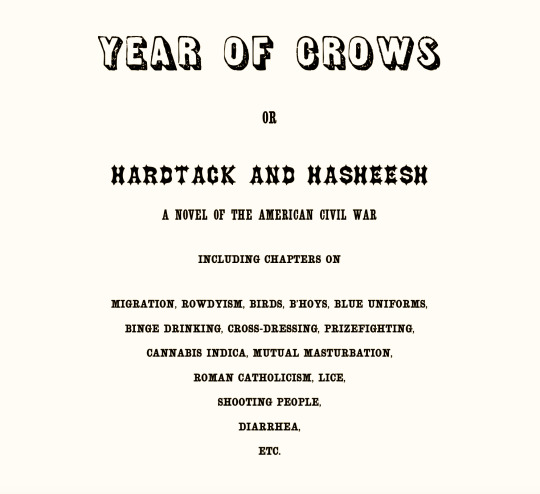
Today is the day--my debut Civil War novel, Year of Crows, is now available in paperback and ebook via Lulu.com or wherever fine books are sold.
Cover design by Robert L. Kroening.
#american civil war#civil war#1860s#history#historical fiction#book recommendation#novel#lgbt#lgbtq#american#irish#fiction#immigration#war#us civil war
27 notes
·
View notes
Note
I have a request, if youre taking them.
Baldwin's wife sneaks into the battle in 1177 with sixteen year old Baldwin, his reaction and what not. make it your own, just thought this would be cool
King Baldwin x reader - My archangel
A/N: I absolutely LOVE this idea! I've never thought of a scenario like this before, so thank you so so much for the suggestion<3
Sorry if this took so long btw, I haven't been active lately because of school and work😔😔
As always, painting is "The Crown of Love" by John Everett Millais (it's so funny to me for no reason, it just makes me think of how Baldwin would be physically dragging you out of danger).
Summary: During the most importante battle of his life so far, the last person king Baldwin expected to see on the battlefield was his newlywed wife
Warning: war, but it's more of a background thing, mentions of injuries and a hint at misogynism
Word count: 5433
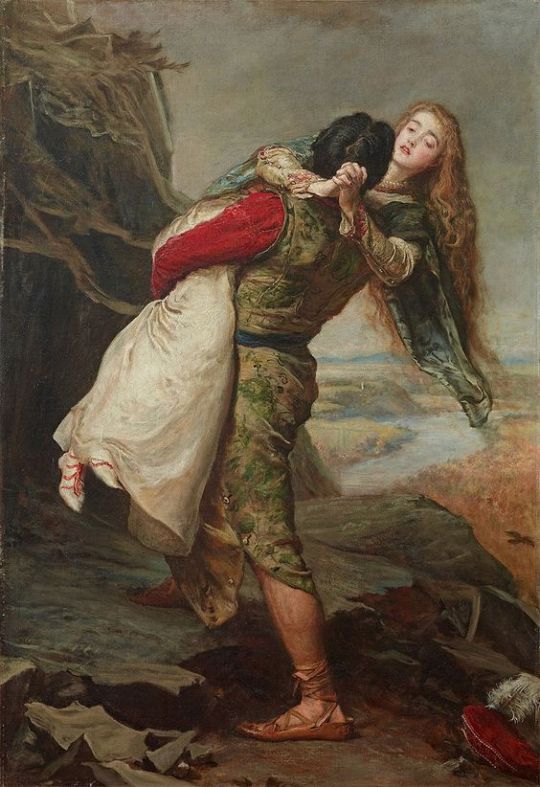
It had been decided. Jerusalem's knights and soldiers would be riding towards Saladin's army at dawn, led by their king, King Baldwin IV of Anjou. Your Baldwin.
The mere idea that tomorrow your husband would find himself fighting face to face against the most fearsome of his enemies terrified you, especially knowing that you could do nothing to protect him. He had expressly said he did not want you or his sisters anywhere near the battlefield, it was too risky. You should have waited for his return, for him to be victorious astride his steed, now lying lifeless on a black bed.
You closed your eyes, begging your mind to spare you from the projection of that macabre image in your head. But you could do nothing against these emotions, which were tearing at your mind and spirit. You could not remain still and impassive, obedient and elegant as you always were as a young princess, then as a wife and now as a queen.
No, that image of you had to slumber, if only for a while. You did not have your kingdom on your mind at that moment, only Baldwin and the overwhelming desire to be close to him.
You cursed your nature for making you a woman, for not having had the opportunity to learn the art of arms and war. You cursed your long robes that prevented you from any daring movement, and your limbs because even if they were able to move freely they would not have the strength to even wield a sword.
As Baldwin fell asleep in your arms, exhausted by the fatigue that this imminent battle was costing him, and you held him close to your heart as if to compel him eternally into your embrace, you weaved a plan in your mind. A plan not to leave him alone at dawn, to stay as close to him as possible.
Because even if it was the day God would claim your husband's soul, at least you wanted to be near him as he took his last breath.
How selfish you were, not even death would have been left for him. But then again, poets have been saying it for centuries, love is the gravest form of madness.
You woke up in an empty bed, the spectre of a kiss floating on your bare shoulder where Baldwin's lips had rested a few moments before, when he had to arouse himself to lead his army into battle. And despair pervaded you almost immediately, when when you woke up still no idea had come to your mind to stay by his side, after you had hoped that sleep would grant you a solution to your problem.
Unable to hold back tears of frustration and despair, you summoned your favourite handmaiden, your nurse, old to almost retirement but cunning as a mischievous child. You wept on her welcoming lap, clutching the fabric of her robe in your fists.
"Oh Agnes, how unfair is my fate as a woman. I am asked to stand by my husband's side all my life and yet I am denied a place beside him in these dark times. And they tear him from my arms and leave me here, alone and helpless, these monstrous Saracens!" She looked at you with sympathetic eyes, stroking the long hair that fell from your shoulders, which resembled the waves of the sea as they shook slightly from your sobs. "What can I do, Agnes? You who always have a quick tongue to give solutions to my every worry, tell me what I can do, before his horse and troops are too far away to be seen."
She, like a mother consoling a child who has injured himself while playing, took your face with one hand, inviting you to turn your gaze towards her. As she wiped the tears that streaked your cheeks with her thumb, she spoke softly to you, although her tone had a hint of her typical mischief in it: "My lady, weeping over your fate does not suit you. Instead, I propose you run. Make haste to the armoury, there you are sure to find armour left behind by some lord. Do you follow me? Well, you will simply have to put on the armour, carrying a pair of your husband's breeches underneath. And keep your helmet tightly closed, so that it cannot be seen that beneath the armour there is not a brutish knight, but a beautiful queen.
Go out of the palace through the servants' passages, and buy the horse of the first man you find. Not yours, in the royal stable they would notice his absence. And then all that remains is for you to ride, ride as fast as you can, to reach the Christian encampments as soon as possible, which by then will have been set up. Remain aloof, and reveal yourself to your husband only. And do so at night, in his tent, where no unwanted eyes can see your unexpected encounter. Is it all clear, my lady?"
You merely nodded frantically with eyes wide in wonder and relief. You practically leapt into the air, quick to grab the first slip you could find and a pair of cheap shoes that you could ruin with all your impending travels. You were about to leave the room, but stopped for a moment at the threshold, before turning back to Agnes to hold her tightly in a warm embrace.
"What would I do without you, my dear. You are even better than a guardian angel, I wouldn't be surprised if one day you left some white feathers behind!" The woman squeezed you affectionately before pushing you away playfully, urging you to get out and go and do whatever she directed. "It is the job of a nurse, to solve a child's problems in the same way as a mother. But hurry now or the battle will be over before you have even found a helmet!"
You laughed lightly as you wiped the dried tears from your cheeks, wasting no more time in rushing to get what was necessary to implement your plan. You rushed in front of the crate containing Baldwin's clothes, tossing robes and shirts in the air until you found breeches fit for a ride. You hastily donned them, then dashed down the long corridors of the palace.
Once in the armoury, you began to spin like a wheel, desperately searching with your eyes for any armour. You weren't picky, anything would have been more than enough: you'd have been fine with just a breastplate, chain mail, simple shoulder straps,… But most of all, you needed a helmet. And that you found almost immediately in your mad search. It was crudely moulded and already bore a few dents on the sides, but you paid no attention to it, it was enough to conceal your identity.
You also found a breastplate, and that was all you needed. You considered taking a sword with you too, but quickly changed your mind: it might be foolish to most, but you hoped that if an enemy found you unarmed, his honour would prevent him from challenging you to a fight.
And then, your focus on your sword quickly faded as you remembered that you still had no horse to reach the battlefield. Running awkwardly, like a child ambitiously trying on his father's far too large armour, you stepped back into the corridors, this time frantically searching with your eyes for a servant to follow towards the back exit.
It must have been a hilarious scene from an outside observer, a burly swineherd looking perplexed over his shoulder as a half-armed knight los eguiva like a tin puppet through the narrow corridors. But the scene was short-lived, for after a couple of turns you finally reached the palace exit, and emerged into the crowded streets of the city.
I had to move my helmet slightly above my eyes to better see the road around you, scanning the area for any horse. You could only see two camels, a few cows, a hen with her small flock of chicks, but no horse in sight. But just when you were about to give up hope, a mysterious force swept over you.
More than mysterious force, you were almost overwhelmed by a horse held on the bridle by a dirty, smelly man. "Out of the way, kid!" Looking at the man with wide eyes, taking good care to make sure your helmet covered your features well, you strained to speak in the most naturally deep voice you could muster, attempting to fool the yokel into mistaking you for a mere boy.
"Sir how much… how much are you asking for your horse?" He laughed, opening his mouth wide and exposing his few remaining teeth, yellow and frayed, and looked at you with a look of paucity and mockery, "You're going off to war without even a horse? The Saracens will impale you like a spit, son. Not that the battle would do you any good either way, with the child king we have, they will all be wiped out. before they even reach those bloody Arabs!”
You clenched your jaw so tightly that you thought your teeth might blow out from the pressure, so hard were you trying to suppress your anger at that disrespectful commoner. Breathing slowly, trying to calm your nerves, you spoke in stiff, icy words, "30 shillings. And you leave me the saddle" The man's eyes widened, incredulous at how much a young man was willing to pay for his old, shabby horse. But he wasn't complaining at all; in fact, better for him if the thirst for war drove the youth of today to such lengths. If only he had known that it was not the bloodlust of a daring young man that was before him, but instead the affectionate madness of a desperate wife.
He did not even answer, stretched out his open hand in front of him where a moment later a bag full of coins fell. He opened it for good measure, making sure the hefty sum was true. When he was satisfied, he slowly handed you the bridle, dazed by the small fortune he was holding.
You hoisted yourself awkwardly onto the horse, and it was not a quick operation as it seemed almost impossible for you not to fall off the horse, so much was the armor restricting your every move and weighing you down. After a few minutes of tribulation, you finally steadied yourself in the saddle and with a firm gesture of your leg, spurred the steed, which galloped off in an instant.
At a gallop, the city didn't seem nearly so big. Nor did the streets seem so crowded, perhaps because the people spread out like the sea in front of Moses as you passed, trying to escape the unpleasant fate of being swept away by the running horse and its mysterious rider. You felt as if you were sailing through the waves of the sea, with people's heads bobbing up and down, a current of movement pushing you closer and closer to the city gates. No one paid much attention to you as you crossed the threshold into the kingdom of heaven, most just thought you were a careless rider who had fallen behind, perhaps this was your first battle. Whatever your problem was, it was not about the wall guards. And so your figure disappeared from the sight of the remaining citizens in the city, vanishing into the vastness of the endless desert.
You did not know quite how long you rode, how many hours it took you before you began to locate even the slightest trace of the passage of the army of Jerusalem. At first it was only small details, marks left on the ground, mainly trinkets possibly dropped to the soldiers during the ride. Then the signs of their passage became more prominent, when around a small oasis you even found a few abandoned spears, probably forgotten back by some careless soldier.
And you stopped there for only a moment, as thirst would have prevented you from going any further. As you drank from the body of water, your mind travelled in thought to your husband; who knows if he too drank from this spring? And if so, how long has it been? Will he be far from here? What would he say when he saw you retracing the passage he and his troops were tracing? At that last thought a shiver ran down your spine, most likely he would not be very happy to know you were so close to danger. You shook your head, trying to rid yourself of the image of the look that Baudouin would give you if he saw you at that moment, alone, barely armed in the vast and merciless desert, with no escort to protect you…
You only hoped that the surprise and joy of seeing you at such a tragic moment might cloud his mind from any concern he might have for you. In the meantime you had quenched your thirst enough. Regaining the reins of your horse, and after a series of ministrations to remount the saddle, you resumed your ride towards the battle with the unknown outcome.
As you rode with the wind blowing in your face, with nothing to entertain or distract you, your mind could not but return again to Baldwin. You could not help it, for fear for his fate had been tearing at your soul for days without respite, ever since it was announced that a battle would take place.
Baldwin was too young for all this. He was barely of marriageable age, he could barely reign without a regent at his side, he was hardly considered more than a child, many nobles even refused to call him an adult! And then there was his illness, which although not yet crippling, had already begun to expand its deadly effect on his body, numbing his nerves and making it impossible for him to wield his right hand properly. It was really unfair, that a man in his condition should lead an army to what everyone considered certain death.
Death at the hands of the Saracens, who were rumoured to be as many as ten times the number of the army of Jerusalem. A sob escaped from your mouth, followed by a faint stream of tears that ran down your cheeks, but they were short-lived on your face, the dry desert wind dried them in no time.
Only an instant seemed to pass, time to bring a hand to his face to wipe away the dried saline tears. Yet when your gaze focused again on the landscape in front, you saw a few hundred metres away a series of white tents, a few faint rows of smoke rising in the air, a massive cross set with precious gems, leaning against a rough wooden construction. It was the camp of the Jerusalem army.
Getting off your horse, you advanced hesitantly through the camp. Looking around, you noticed the stunned gazes of soldiers and horsemen watching you, some intrigued by your unkempt armor, some confused by your clumsy way of moving. But although the attention of their gazes made you stop breathing, fearing that you had been discovered, but fortunately it was short-lived, all the men were too tired from the exertions of the journey to investigate even this oddity. Taking you for an inexperienced little boy, they looked away from you and proceeded to drag their aching limbs back to their respective tents.
But although no one gave you more than the attention you give any stranger on the street, your heart would not stop beating furiously in its cage. You quivered at the mere thought of seeing your husband again, who although he had recently separated from you, already felt as if you had not seen him for an eternity. And your soul screamed at the idea that this might be the last time you would see him alive, and urged your legs to move faster. From hesitant strides, your gait grew brisk, impatient, and faster and faster until you burst into a frantic run through the expanse of white tents.
You scanned one, two, ten, a hundred, so many that by now they seemed to you an endless bundle of the same white cloth. But although your hope gave no sign of existing from your mission, your legs were beginning to give out under the constant strain you had subjected your body to for endless hours. You had no choice but to stop to catch your breath, resting your hands on your trembling thighs as you gasped for breath. And it was in that very instant, while you neither heard nor saw anything but the roar of your heart echoing in your ears and the rough ground flattened by the heavy footsteps of the soldiers, dark because of the blurred evening light, that you heard it. That voice.
"We will discuss this tomorrow, now I need the rest" "Certainly, my lord." The dialogue was followed by a knight of high lineage who came out of the tent in front of which you had pulled up to rest. He did not even dignify you with a glance, and you could not care less, for it was not him you were interested in. He was the first man to speak who had captured your complete attention, making the whole world fade away around you. It was a jovial voice, full of life despite obvious tiredness. It was a boy's voice. It was Baldwin's voice.
You sidled up to the curtain of the tent and, before opening your mouth, breathed slowly, tending not only to ease your nerves but also to modulate your voice to make it more masculine, deeper. The deception was to be revealed only when you were alone in the tent, away from prying eyes.
"My king, I know you are now bereft of strength, but grant me a brief interview with your majesty." You could visualize him rolling his eyes, puffing silently and running his good hand over his eyes, as he was always wont to do when any courtier demanded his attention while he was already lying in your arms. And as whenever this familiar event took place, similarly Baldwin made an effort in this case to stand up and mutter a reply, unaware that the subject behind the cloth was not just any boy, but his beloved wife. "I'm afraid I'm in no condition for a meeting at the moment. We will discuss whatever you need tomorrow." Panic grew in you hearing him so indisposed. After all, you should have expected it; he had more to think about than granting an interview to an anonymous soldier. In an instant, however, you changed your strategy, if you couldn't convince him you would have to bait him, "Please, sir, give me a few minutes! I bring with me a great surprise, a gift that I know will fill your heart with joy and restore your energy!"
He paused, as if weighing his options. At least that was what you thought, but in truth Baldwin was wondering if he was going crazy. If he had only dreamed, due to exhaustion and fatigue, that the voice speaking to him from outside the tent was not any young man's, but a disguise meant to hide the angelic melodic voice of his beloved wife. Were it really her, Baldwin would not have wasted a moment in throwing open the door for her, taking her into his arms and carrying her to his momentary abode, where her presence alone could be savored by him.
But he knew it could not be possible: you, his beloved wife whose image constantly pervaded his mind, were thousands and thousands of feet away, safe within the walls of your palace, as you had promised him. It was just not possible that you were the one hiding outside the tent, his hopes were just a cruel game of his mind. But by now his attention had been caught by the stranger so eager to talk to the king, to give him this phantom gift. Perhaps there would have been cause for concern, for thought of possible deception or assault by an enemy spy, but Baldwin did not give the thought more than a second's attention, before sighing softly and turning away, gazing back at the white fabrics of the tent. "Very well, come forward then. I hope this surprise you tell me about is really that formidable."
You came close to slinging yourself into the tent, throwing yourself into Baldwin's arms in an instant, and never letting go. But you still couldn't do it; it was too risky. You merely placed a hand on the side of the fabric that closed the curtain, pulling it to go through and letting it fall back behind you. And there you stood, facing Baldwin, clad in that armor far too large for your size, your heart pounding wildly from both the fatigue of the journey and the excitement. And he slowly, with a phlegm as elegant as the waters of a stream, turned to reveal the identity of his mysterious visitor, and you had already freed your face from the tortuous confines of the helmet you had worn for endless hours.
His eyes widened, wide as never before. Perhaps for the first time in his life, Baldwin could say he was truly, truly surprised. A thousand emotions passed from his face, from astonishment, to joy, to anger, and then to sadness, and then to astonishment again. For a moment he seemed about to open his mouth, but he stopped, opting instead to run to you, putting his arms around you, holding you tight and lifting you off the ground so tight was his grip. "My affection, how can you be so foolish! This is no place for you, so far from home, close to the enemy… You promised me you would stay safe, let me go, let me protect you! How could you do something so rash, you who are always so wise? Alone through the desert, what if the enemy had met you before I got here? What would I have done if your lifeless body, tortured by the Saracens, had been brought to me?"
His voice was exhausted, worn out by weariness and emotion that blocked his throat and threatened to make hot tears fall from his white cheeks. His words were harsh and stern, but devoid of any reproach: it was his fear speaking, his fear of seeing you the next day among the stacked bodies of war victims. And as he spoke he held your arms, shook you lightly, and in the process interrupted himself to place chaste kisses on your face, as if through the touch of his lips he was trying to convince himself that you were really there, standing before him. That it was not a mere illusion, a game of his mind.
Gently, with a touch as light as the morning wind, your hands went up his chest to his beautiful face, which you lovingly cupped. "I swore before God that I would not abandon my place at your side until the breath leaves my body. I have enjoyed with you wealth, pomp, and good fortune. But what you have granted me to witness is only half of the aspects of a nuptial union. Poverty, sickness, and the misery of war are the woes that touch every human being, and which two spouses are expected to face together. So now, my king, I beseech you, do not deny me a place at your side as you fight for the honor and freedom of the Holy Land, do not deny me a duty that has been mine since you and I were joined in eternity. It is unjust what you have subjected me to, to have to watch you ride away from me, toward the worst of dangers! And how could you think I would let you go just like that, without opening my mouth? Now we are even, I have retraced the path you yourself have traced, as bereft of safety as you were bereft of my presence. And now together we face this mortal danger, which, however, will never hold a candle to the pain that distance from you brings me!"
Baldwin's eyes softened, though they had a melancholy note in them. He inhaled with shuddering breath, and his grip became softer on your body, his hands descended from his arm to your waist, always holding you as close as physically possible.
"I was always told that silence honors women. This does not suit you, for depriving you of speech robs you of the royalty that makes you my queen. I ask your forgiveness, my angel, for leaving you alone in such a dark time. But try to understand my choice, how self-centered would I have been to ask you to come with me, in the midst of the greatest danger? It was simply too much for me, my beloved, the burden on my heart, begging me to do all that was permissible to keep you safe, even if that necessitated keeping you away from me. You are too far away now for me to send you back to the palace with an escort, and my heart could not bear to part with you for even another hour. You will stay here, ruling your people as you should. But please do not do me the wrong of setting foot on that bloody battlefield tomorrow. If even God decides that tomorrow my hour has come, and I fall lifeless on the bloody ground, do not move a step, do not show any sign of weakness. Don't follow me into the afterlife, don't even think about it: I know full well that I will never have the honor of lying eternally by your side, I am not worthy of it, so don't jeopardize your precious life in the name of an eternity by my side."
You did not respond, and silence fell. Squeezing together for another moment, you broke away shortly thereafter only to move to the bed set up in his tent, not as luxurious as his usual palace bed but certainly far more comfortable than the hay bunks in which soldiers elsewhere rested. Clinging to each other, you remained silent for a few moments. Or maybe it was hours, neither of you knew. Nor did you care, knowing how much time had passed, how much more separated you from the inescapable fate that awaited you the next day. Silent tears streaked your faces, sobs and sighs filled the air of the room. Then, you took courage to open your mouth, your voice soft and melancholy, weakened by weeping. "How unfair is our fate, affection. How bitter is my soul, knowing that tomorrow I must witness such a slaughter, an open-air slaughterhouse in which you yourself may become yet another victim."
As your first response you heard a snort from your husband, who squeezed you tighter for a moment, as if to secure you beside him, engulf you in his body. His lips pressed against your temple, placing a gentle kiss there, and they remained resting there even as he began to speak, "I know, I know my angel. I too wish things were simpler, that I could retire from this world, go and live with you, away from all this chaos, all this violence. You don't know how much I would have liked to abdicate, to leave the throne to Sybilla and her husband. They would have been good rulers, if only dear William had not passed away so soon. And so we have only to live like this, my beloved. To live perpetrated by the duties and horrors that mankind is capable of, all in the name of God's affection," a pause, a look that said a thousand silent words, and then resumed, "in the name of my affection for you… Tomorrow it will be an honor for me to fight, for like the valiant Lancelot, who fought to his last breath in the name of beautiful Guinevere. I do not care if my life will be endangered, if I return wounded and maimed more than leprosy is already reducing me. No, I don't care, because at the end of the day, whether my heart still beats or not, I know that I will return to lie in your arms.
And that makes up for all the injustices I will have to face." The last words were whispered, softened by a deep affection that numbed the senses and made everything as graceful as the clouds in the sky.
More tears streamed down your rosy cheeks, but you tried to conceal them by hiding your face in the crease of Baldwin's neck. The tone grew sterner for a moment as he resumed speaking, intimating you to listen with a grip on your shoulder. "Just promise me that, in case the battle goes badly, and I am dead and defeated and my whole army with me, promise me that you will escape, as far away as you can. Find shelter at the dwellings of those who have abstained from this conflict, find asylum in churches and in any sacred place you can find. Do whatever you can in order to protect your life. Protect what has always been dearest to me, your life."
"I will, I promise." You would have liked to retort, or much less say what he wanted to hear without really thinking it. But deception did not suit you, not toward Baldwin at least. And the mere thought that that might be his last will, which made you want to throw yourself to the ground and cry every tear you had in your body, also made it impossible for you to disobey that simple request, which after all was the request that you care for your own body and soul.
Whether Baldwin had taken your word for it or not, you were not sure, it was hard to say. It didn't matter, both of you were too tired to linger talking any longer, contrary to your usual routine of endless discussions on all kinds of topics. He whispered something to you in his native tongue, and although the language was vaguely unfamiliar to you and fatigue clouded your mind, you could still discern a sweet "I love you" among the words he spoke.
The next day your awakening was similar to the day Baldwin left Jerusalem: alone in bed, the place where your husband lay still warm. Outside the men were shouting orders and the horses were pawing in irritation at the din. In the distance you could hear the cries of the Saracens approaching, and the horns of war echoing in the air. You tried to peep your head out of the tent, but a guard surprised you right in front of the entrance. "My lady, his majesty has ordered that you do not leave the tent until the battle is over." The tone was authoritative and gentle at the same time, but his spear was stretched across the opening of the tent, an admonition far more direct than his words. You obeyed, as you had promised Baldwin that same evening, and without protest you retreated back inside the small temporary dwelling.
And so you stood there, alone and unaware of what was unfolding beyond the white tent. The last sound you were able to discern was your beloved's voice inciting his men to battle, before the din of war produced such a cacophony that it was impossible to understand a single sentence spoken. They rode for a few hundred meters until they reached the place where the battle would take place. They rode so far that the din they caused as they passed became muffled, barely audible. And perhaps it was for the best, for the distance muffled the atrocious sounds of war, of slaughter.
And so you waited there, within the four fabric walls, white as snow, that you feared at every moment might be stained with blood, friend or foe. You waited for the outcome of the battle, dumb with fear, with tension. You awaited Baldwin's return, dead or alive, victorious or defeated. And you did so by standing there, closer to him than was possible, exhausted and restless at the same time.
A/N: Yallll this was LONGGGG. i really really like how this turned out, and i hope you do too! I'm really sorry for how long it took me to write this piece, but I promise the following ones will take much much less🙏🙏🙏 Anyway, now I gotta go start working on those, feel free to leave a comment or feedback about this fic<3<3
#king baldwin x reader#kingdom of heaven#fluff#king baldwin iv#anonymous#f!reader#writers on tumblr#my fic#historical fiction#historical inaccuracies
42 notes
·
View notes
Text
One of my biggest nitpicks in fiction concerns the feeding of babies. Mothers dying during/shortly after childbirth or the baby being separated form the mother shortly after birth is pretty common in fiction. It is/was also common enough in real life, which is why I think a lot of writers/readers don't think too hard about this. however. Historically, the only reason the vast majority of babies survived being separated from their mother was because there was at least one other woman around to breastfeed them. Before modern formula, yes, people did use other substitutes, but they were rarely, if ever, nutritionally sufficient.
Newborns can't eat adult food. They can't really survive on animal milk. If your story takes place in a world before/without formula, a baby separated from its mother is going to either be nursed by someone else, or starve.
It doesn't have to be a huge plot point, but idk at least don't explicitly describe the situation as excluding the possibility of a wetnurse. "The father or the great grandmother or the neighbor man or the older sibling took and raised the baby completely alone in a cave for a year." Nope. That baby is dead I'm sorry. "The baby was kidnapped shortly after birth by a wizard and hidden away in a secret tower" um quick question was the wizard lactating? "The mother refused to see or touch her child after birth so the baby was left to the care of the ailing grandfather" the grandfather who made the necessary arrangements with women in the neighborhood, right? right? OR THAT GREAT OFFENDER "A newborn baby was left on the doorstep and they brought it in and took care of it no issues" What Are You Going to Feed That Baby. Hello?
Like. It's not impossible, but arrangements are going to have to be made. There are some logistics.
#idk what to tag this#worldbuilding#writing fiction#historical fiction#fantasy#a real-life example: my dad (a pediatrician) was once entrusted with the care of a baby who was born with a rare condition#this was in a place without great hospital/medical access and anyway they were going to fly the baby over#and he specifically asked them to bring the mother and baby#they show up with baby and...the baby's uncle#and he was like. y'all. do you think I asked for the mom to come just for fun??? We don't have formula here. what is the baby going to eat?
37K notes
·
View notes
Text
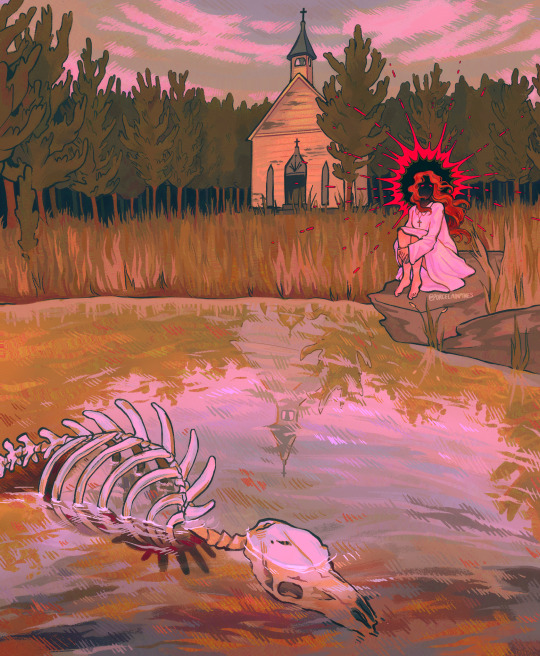
putrid air
#reference photo/inspo is by brendan burton (@burtoo on twt)#original character#digital painting#oc artist#queer artist#digital art#trans artist#lgbt art#oc#oc artwork#cowboy oc#historical oc#western oc#historical fiction#character design#cowboys#rosie#horror art#creepy art#unsettling art
43K notes
·
View notes
Text
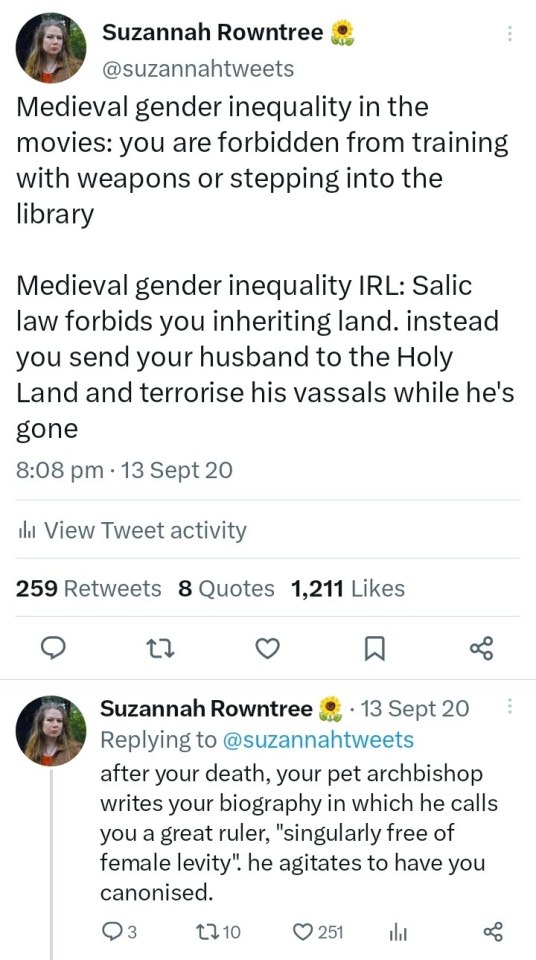
all RIGHT:
Why You're Writing Medieval (and Medieval-Coded) Women Wrong: A RANT
(Or, For the Love of God, People, Stop Pretending Victorian Style Gender Roles Applied to All of History)
This is a problem I see alllll over the place - I'll be reading a medieval-coded book and the women will be told they aren't allowed to fight or learn or work, that they are only supposed to get married, keep house and have babies, &c &c.
If I point this out ppl will be like "yes but there was misogyny back then! women were treated terribly!" and OK. Stop right there.
By & large, what we as a culture think of as misogyny & patriarchy is the expression prevalent in Victorian times - not medieval. (And NO, this is not me blaming Victorians for their theme park version of "medieval history". This is me blaming 21st century people for being ignorant & refusing to do their homework).
Yes, there was misogyny in medieval times, but 1) in many ways it was actually markedly less severe than Victorian misogyny, tyvm - and 2) it was of a quite different type. (Disclaimer: I am speaking specifically of Frankish, Western European medieval women rather than those in other parts of the world. This applies to a lesser extent in Byzantium and I am still learning about women in the medieval Islamic world.)
So, here are the 2 vital things to remember about women when writing medieval or medieval-coded societies
FIRST. Where in Victorian times the primary axes of prejudice were gender and race - so that a male labourer had more rights than a female of the higher classes, and a middle class white man would be treated with more respect than an African or Indian dignitary - In medieval times, the primary axis of prejudice was, overwhelmingly, class. Thus, Frankish crusader knights arguably felt more solidarity with their Muslim opponents of knightly status, than they did their own peasants. Faith and age were also medieval axes of prejudice - children and young people were exploited ruthlessly, sent into war or marriage at 15 (boys) or 12 (girls). Gender was less important.
What this meant was that a medieval woman could expect - indeed demand - to be treated more or less the same way the men of her class were. Where no ancient legal obstacle existed, such as Salic law, a king's daughter could and did expect to rule, even after marriage.
Women of the knightly class could & did arm & fight - something that required a MASSIVE outlay of money, which was obviously at their discretion & disposal. See: Sichelgaita, Isabel de Conches, the unnamed women fighting in armour as knights during the Third Crusade, as recorded by Muslim chroniclers.
Tolkien's Eowyn is a great example of this medieval attitude to class trumping race: complaining that she's being told not to fight, she stresses her class: "I am of the house of Eorl & not a serving woman". She claims her rights, not as a woman, but as a member of the warrior class and the ruling family. Similarly in Renaissance Venice a doge protested the practice which saw 80% of noble women locked into convents for life: if these had been men they would have been "born to command & govern the world". Their class ought to have exempted them from discrimination on the basis of sex.
So, tip #1 for writing medieval women: remember that their class always outweighed their gender. They might be subordinate to the men within their own class, but not to those below.
SECOND. Whereas Victorians saw women's highest calling as marriage & children - the "angel in the house" ennobling & improving their men on a spiritual but rarely practical level - Medievals by contrast prized virginity/celibacy above marriage, seeing it as a way for women to transcend their sex. Often as nuns, saints, mystics; sometimes as warriors, queens, & ladies; always as businesswomen & merchants, women could & did forge their own paths in life
When Elizabeth I claimed to have "the heart & stomach of a king" & adopted the persona of the virgin queen, this was the norm she appealed to. Women could do things; they just had to prove they were Not Like Other Girls. By Elizabeth's time things were already changing: it was the Reformation that switched the ideal to marriage, & the Enlightenment that divorced femininity from reason, aggression & public life.
For more on this topic, read Katherine Hager's article "Endowed With Manly Courage: Medieval Perceptions of Women in Combat" on women who transcended gender to occupy a liminal space as warrior/virgin/saint.
So, tip #2: remember that for medieval women, wife and mother wasn't the ideal, virgin saint was the ideal. By proving yourself "not like other girls" you could gain significant autonomy & freedom.
Finally a bonus tip: if writing about medieval women, be sure to read writing on women's issues from the time so as to understand the terms in which these women spoke about & defended their ambitions. Start with Christine de Pisan.
I learned all this doing the reading for WATCHERS OF OUTREMER, my series of historical fantasy novels set in the medieval crusader states, which were dominated by strong medieval women! Book 5, THE HOUSE OF MOURNING (forthcoming 2023) will focus, to a greater extent than any other novel I've ever yet read or written, on the experience of women during the crusades - as warriors, captives, and political leaders. I can't wait to share it with you all!
#watchers of outremer#medieval history#the lady of kingdoms#the house of mourning#writing#writing fantasy#female characters#medieval women#eowyn#the lord of the rings#lotr#history#historical fiction#fantasy#writing tip#writing advice
29K notes
·
View notes
Text
why are skirts inherently evil and oppressive in historical fiction until men are wearing them
I've never heard anyone going on at length about how Universally ImpracticalTM the garb of a Scotsman or an ancient Roman politician are
suddenly everyone has a concept of situational practicality that previously was not there
#history#clothing history#historical fiction#'SKIRTS are so IMPRACTICAL-' always? every time? for everyone?#because I don't know about you but I live in a city and work in museums#skirts are A-okay for me#also people have done MANY types of physical activity in skirts for centuries. sometimes pants are more practical for sure!#but. not always.#and you never hear fiction authors talking about how oppressed Scotsmen are by their kilts#'he couldn't FUNCTION because he wasn't wearing PANTS!' I'd like to see someone try it
2K notes
·
View notes
Note
Hi I was wondering if you know of any good resources to get good vintage names that aren’t typical and boring (Fred, Edward, Alfred etc)?
Some of the names in the Santa letters are certainly peculiar and it made me wonder what kind of names those “vintage baby names” lists are leaving out 😜
Thanks! And happy new year 🎊
One place to get a good general overview of what names were like in a certain era is the Social Security Administration's lists of popular names that go back to the 1880s. The further down the lists you go the less common they get. However these are still all names that had at least a few hundred occurrences, so you're not going to have any Gloyds etc..
I personally always try to find names from primary sources (newspapers, census, vital records, etc.) as you're more likely to come across unusual names that don't make the top 200 lists.
Also keep in mind that name popularity varied greatly by location. Just because there were a bunch of Juanitas in Tulsa in 1930 doesn't mean there were that many in Boston.
Honestly if anyone is working on a specific project and needs names from a certain location/era (i.e. you're writing a novel that takes place in London in 1627) feel free to message me and I'd be happy to work with you to compile a list from primary sources. I love this stuff and will use any valid excuse to spend an evening digging through 17th century baptismal records.
#if you buy me a coffee I might even make you a simple custom name generator#I do this for myself all the time because I'm a party person who really likes spreadsheets#names#history#historical fiction#writing resources#asks#@sir-sleepalot#writing reference#character names
2K notes
·
View notes
Text
my blacksmith business is doing unusually well this month
keep reading >>
1K notes
·
View notes
Text

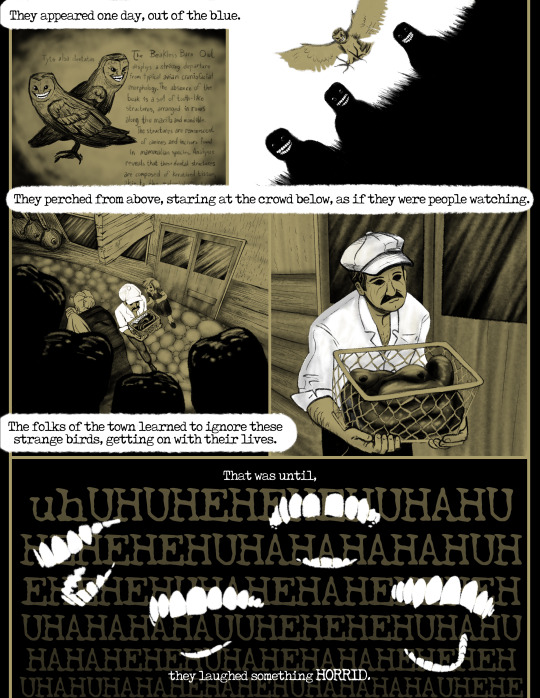
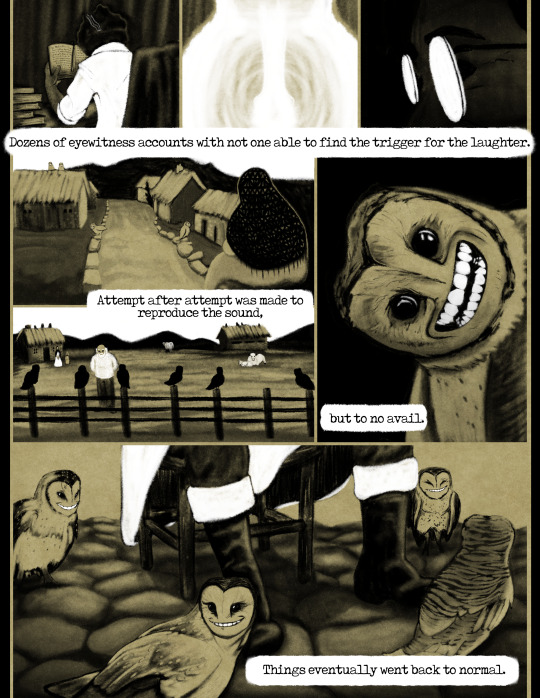
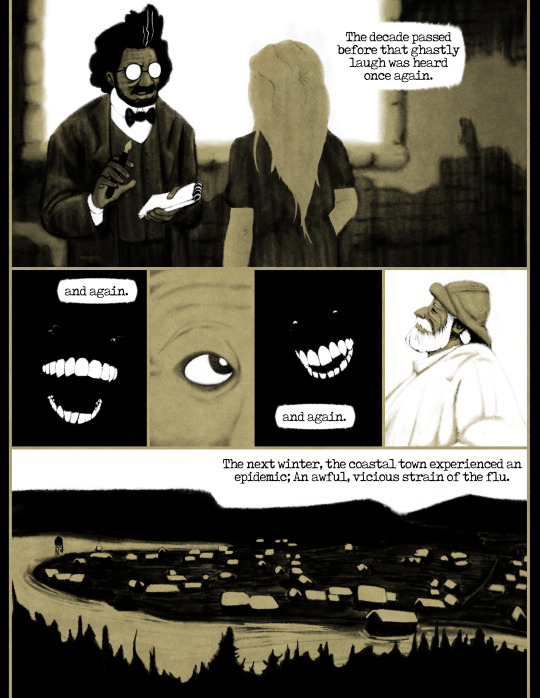
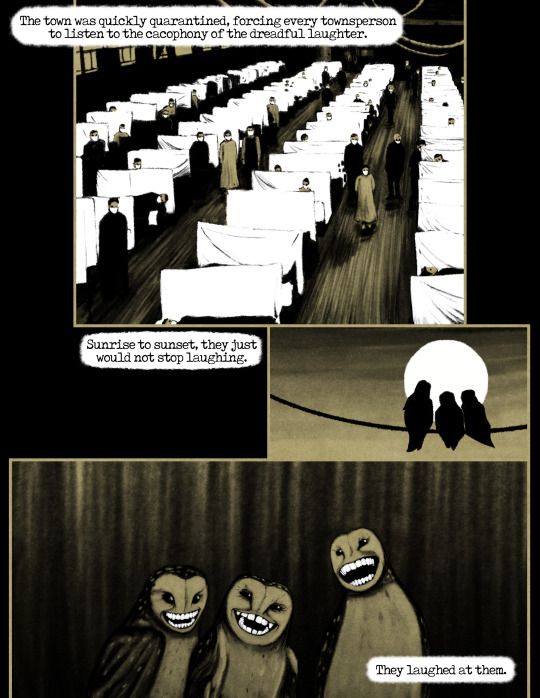
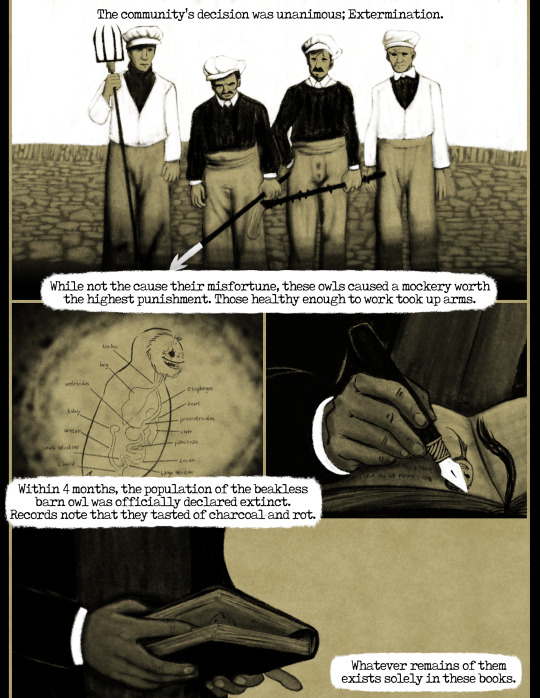
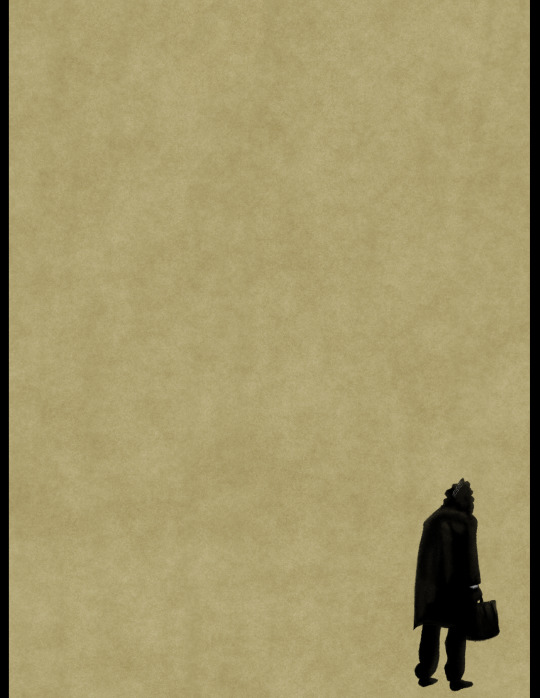
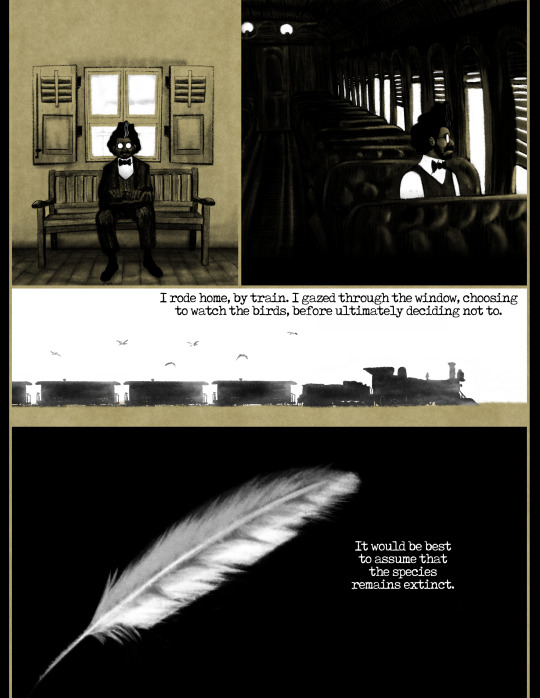
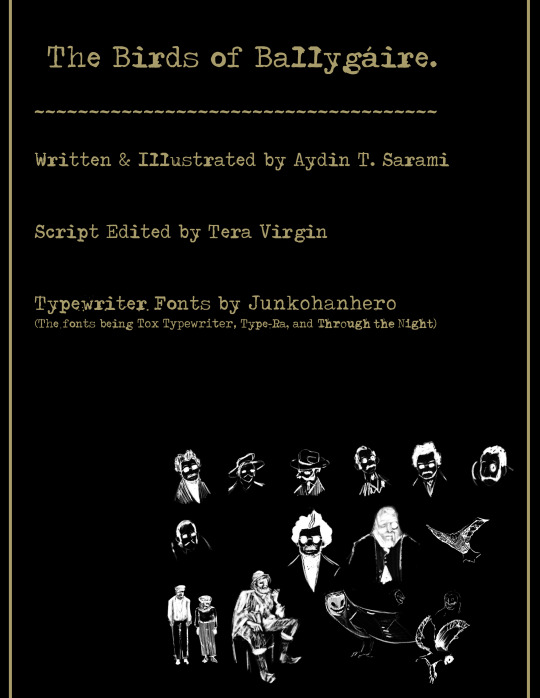
The Birds of Ballygáire.
thank you so much for reading. i appreciate it.
Special thanks to @terastrialbean for script editing & @junkohanhero for their wonderful typewriter fonts.
#oc#ocs#artists on tumblr#art#lovecraftian horror#lovecraft#horror#tyto alba#barn owl#bird#bird art#pendeedles#comic#comics#indie comic#indie comics#horror comic#teeth#irish horror#horror art#vintage#vintage horror#horror comics#indiecomics#dark fantasy#historical horror#historical fiction#illustrationartists#folk horror
1K notes
·
View notes
Text
Non-offensive Historical terms for Black people in historical fiction
@pleasespellchimerical asked:
So writing historical fiction, with a white POV character. I'm not sure how to address race in the narration. I do have a Black main character, and I feel like it'd feel out of place to have the narrator refer to her as 'Black', that being a more modern term. Not sure how to do this without dipping into common historical terms that are considered racist today. Thoughts on how to handle this delicately, not pull readers out of the narrative? (fwiw, the POV character has a lot of respect for the Black character. The narration should show this)
There are non-offensive terms you can use, even in historical fiction. We can absolutely refer to Black people without slurs, and if slurs is all one can come up with, it’s time to go back to the drawing board. I cannot say which terms are best for your piece without knowing the time period, but hopefully the list below helps.
Historical terms to use for Black people (non-offensive)
African American documented as early as 1782 (documented in an ad in the Pennsylvania Journal). Note the identity isn’t accurate for non-American Black people.
African could refer to African people or “from 1722 as ‘of or pertaining to black Americans.’”
The place of origin could also be used. For example, “a Nigerian woman”
Africo-American documented as early as 1788.
People of Color documented as early as 1796 (with specific contexts, usually mixed people)
Afro American documented as early as 1817, 1831 (depending on source)
Black American documented as early as 1831
Black was used in Old English to refer to dark-skinned people. Black was not capitalized until recent years, so “She was a young black woman.” would make sense to say, though “She was a young Black woman.” is the better standard today, although not universally adopted. I personally prefer it capitalized.
Moor was used as early as the late 1400s for North African people, but had a somewhat flexible use where anyone visibly Black / Of African descent or the Afro Diaspora might be referred to or assumed as a Moor. Note, it has other meanings too, such as referring to Muslim people, but that doesn’t mean the person using it is going by the dictionary definition. Not really the way to go today, but okay in a historical setting (in my opinion).
Biracial (1860s), mixed race (1872), multiracial (1903) and multicultural (1940s) are also terms to refer to people of two or more races.
Occupation + description. Throughout history, many people have been referred to as their occupation. For example, the Carpenter, The Baker, the Blacksmith. Here’s an example of how you might go about using occupation and traits to identify a Black character in history. Here’s an example I came up with on the fly.
“You should go by Jerry’s. He’s the best blacksmith this town’s ever seen. Ya know, the real tall, dark-skinned, curly haired fellow. Family’s come here from Liberia.”
Offensive and less-sensitive terms for Black people
Blacks was used in plural more, but this is generally offensive today (Even writing it gives me **Thee ick*)
Colored was mostly used post-civil war until the mid 20th century, when it became unacceptable. This is not to be conflated with the South African Coloured ethnic group.
Negro/Negroes were also used as early as the 1550s. Capitalization became common in the early 20th century. I'm sure you know it is offensive today, though, admittedly, was not generally seen as such until around the 1960s, when Black replaced it. It does have its contexts, such as the trope “The Magical Negro” but going around using the term or calling someone that today is a lot different.
Mulatto referred to mixed people, generally Black and white, and is offensive today.
The N-word, in all its forms, is explicitly a slur, and there is absolutely no need to use it, especially in a casual manner, in your story. We’ve written about handling the N-word and alluding to it “if need be” but there are other ways to show racism and tension without dropping the word willy-nilly.
Deciding what to use, a modern perspective
I’m in favor of authors relying on the less offensive, more acceptable terms. Particularly, authors outside of the race. Seldom use the offensive terms except from actual direct quotes.
You do not have to use those offensive terms or could at least avoid using them in excess. I know quite famous stories do, but that doesn’t mean we have to so eagerly go that route today. Honestly, from teachers to school, and fellow non-Black students, it’s the modern day glee that people seem to get when they “get a chance to say it” that makes it worse and also makes me not want to give people the chance.
It goes back to historical accuracy only counting the most for an “authentic experience” when it means being able to use offensive terms or exclude BIPOC from stories. We’ve got to ask ourselves why we want to plaster certain words everywhere for the sake of accuracy when there are other just as accurate, acceptable words to use that hurt less people.
Disclaimer: Opinions may vary on these matters. But just because someone from the group cosigns something by stating they’re not offended by it, doesn’t mean a whole lot of others are okay with it and their perspectives are now invalid! Also, of course, how one handles the use of these words as a Black person has a different connotation and freedom on how they use them.
~Mod Colette
The colonial context
Since no country was mentioned, I’m going to add a bit about the vocabulary surrounding Black people during slavery, especially in the Caribbean. Although, Colette adds, if your Black characters are slaves, this begs the question why we always gotta be slaves.
At the time, there were words used to describe people based on the percentage of Black blood they had. Those are words you may find during your searches but I advise you not to use them. As you will realize if you dive a bit into this system, it looks like a classifying table. At the time, people were trying to lighten their descent and those words were used for some as a sort of rank. Louisiana being French for a time, those expressions were also seen there until the end of the 19th century.
The fractions I use were the number of Black ancestors someone had to have to be called accordingly.
Short-list here :
½ : mûlatre or mulatto
¼ or ⅛ : quarteron or métis (depending on the island, I’m thinking about Saint-Domingue, Martinique and Guadeloupe)
1/16 : mamelouk
¾ : griffe or capre
⅞ : sacatra
In Saint-Domingue, it could go down to 1/64, where people were considered sang-mêlé (mixed blood for literal translation, but “HP and the Half-Blood Prince” is translated “HP et le Prince de Sang-Mêlé” in French, so I guess this is another translation possibility).
-Lydie
Use the 3rd person narrative to your advantage
If you are intent on illustrating historical changes in terminology consider something as simple as showing the contrast between using “black” for first person character narration, but “Black” for 3rd person narrator omniscient.
-Marika
Add a disclaimer
I liked how this was addressed in the new American Girl books
it’s set in Harlem in the 1920’s and there’s a paragraph at the beginning that says “this book uses the common language of the time period and it’s not appropriate to use now”
-SK
More reading:
NYT: Use of ‘African-American’ Dates to Nation’s Early Days
The Etymology dictionary - great resource for historical fiction
Wikipedia: Person of Color
2K notes
·
View notes
Text
PSA to all historical fiction/fantasy writers:
A SEAMSTRESS, in a historical sense, is someone whose job is sewing. Just sewing. The main skill involved here is going to be putting the needle into an out of the fabric. They’re usually considered unskilled workers, because everyone can sew, right? (Note: yes, just about everyone could sew historically. And I mean everyone.) They’re usually going to be making either clothes that aren’t fitted (like shirts or shifts or petticoats) or things more along the lines of linens (bedsheets, handkerchiefs, napkins, ect.). Now, a decent number of people would make these things at home, especially in more rural areas, since they don’t take a ton of practice, but they’re also often available ready-made so it’s not an uncommon job. Nowadays it just means someone whose job is to sew things in general, but this was not the case historically. Calling a dressmaker a seamstress would be like asking a portrait painter to paint your house
A DRESSMAKER (or mantua maker before the early 1800s) makes clothing though the skill of draping (which is when you don’t use as many patterns and more drape the fabric over the person’s body to fit it and pin from there (although they did start using more patterns in the early 19th century). They’re usually going to work exclusively for women, since menswear is rarely made through this method (could be different in a fantasy world though). Sometimes you also see them called “gown makers”, especially if they were men (like tailors advertising that that could do both. Mantua-maker was a very feminized term, like seamstress. You wouldn’t really call a man that historically). This is a pretty new trade; it only really sprung up in the later 1600s, when the mantua dress came into fashion (hence the name).
TAILORS make clothing by using the method of patterning: they take measurements and use those measurements to draw out a 2D pattern that is then sewed up into the 3D item of clothing (unlike the dressmakers, who drape the item as a 3D piece of clothing originally). They usually did menswear, but also plenty of pieces of womenswear, especially things made similarly to menswear: riding habits, overcoats, the like. Before the dressmaking trade split off (for very interesting reason I suggest looking into. Basically new fashion required new methods that tailors thought were beneath them), tailors made everyone’s clothes. And also it was not uncommon for them to alter clothes (dressmakers did this too). Staymakers are a sort of subsect of tailors that made corsets or stays (which are made with tailoring methods but most of the time in urban areas a staymaker could find enough work so just do stays, although most tailors could and would make them).
Tailors and dressmakers are both skilled workers. Those aren’t skills that most people could do at home. Fitted things like dresses and jackets and things would probably be made professionally and for the wearer even by the working class (with some exceptions of course). Making all clothes at home didn’t really become a thing until the mid Victorian era.
And then of course there are other trades that involve the skill of sewing, such as millinery (not just hats, historically they did all kinds of women’s accessories), trimming for hatmaking (putting on the hat and and binding and things), glovemaking (self explanatory) and such.
TLDR: seamstress, dressmaker, and tailor are three very different jobs with different skills and levels of prestige. Don’t use them interchangeably and for the love of all that is holy please don’t call someone a seamstress when they’re a dressmaker
#sewing#historical sewing#sewing knowledge#writing guide#PSA to writers#historical fiction#fantasy writing
706 notes
·
View notes
Text
All my illustrations for David Tennant's magnificent Richard II.
Act One



(No Act Two because 1) it's very short, and 2) he's a complete and utter raging git in it XD)
Act Three



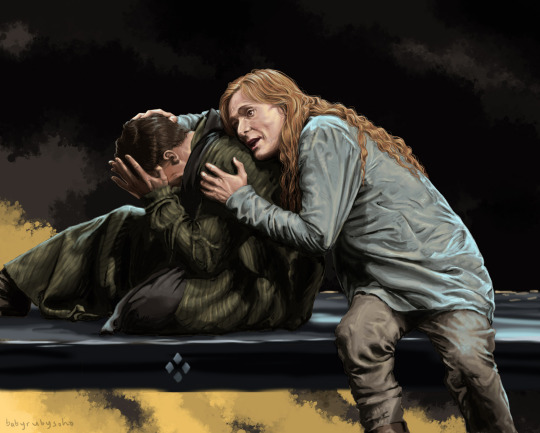


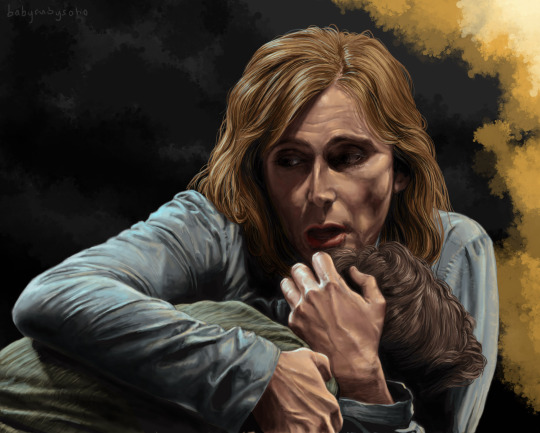
Act Four




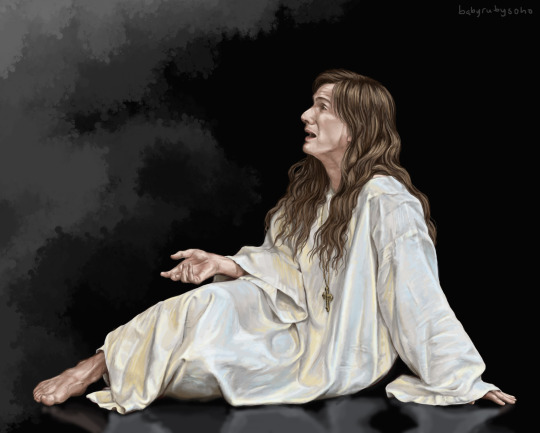
Act Five
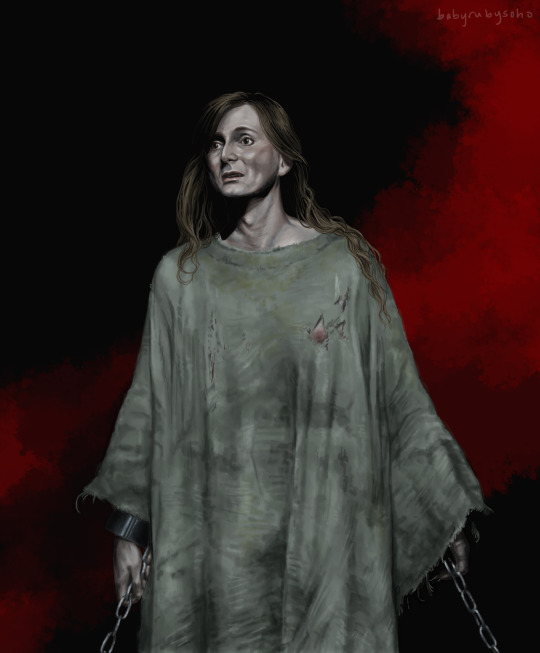

(Thought I'd throw them up all together because right now it's the art I'm proudest of😊)
#david tennant#richard ii of england#richard ii#shakespeare fanart#historical fiction#babyrubysoho art
723 notes
·
View notes
Text
can’t currently afford the print copy of the fabulous @lackadaisycats work?
maybe your local library will buy it in the meantime! hand for scale.
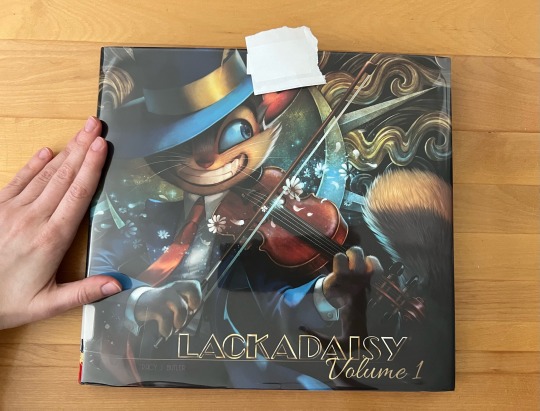
reading a hard copy of what I found years ago on the internet is cool in its own right, but the over 20 pages of bonus content are what’s really tempting.
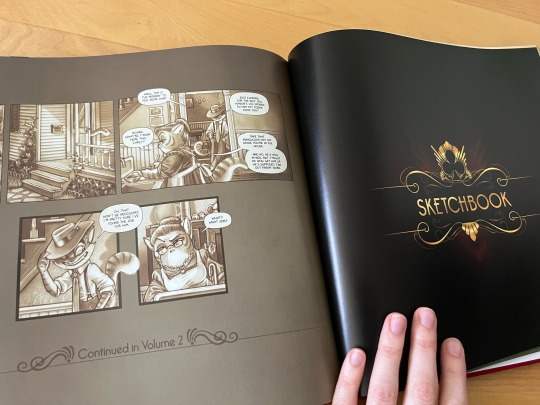
note about the back cover: this is what was facing out as I carried the book in my arm out of the library and into the streets. certainly didn’t make me look like a psycho I’m sure.

#cheers#lackadaisy#lackadaisy comic#lackadaisy cats#tracy j butler#iron circus comics#good art#good books#graphic novel#webcomic#public libraries#library books#library#books & libraries#support artists#1920s#historical fiction#anthromorphic#writeblr#artblr#booklr
892 notes
·
View notes